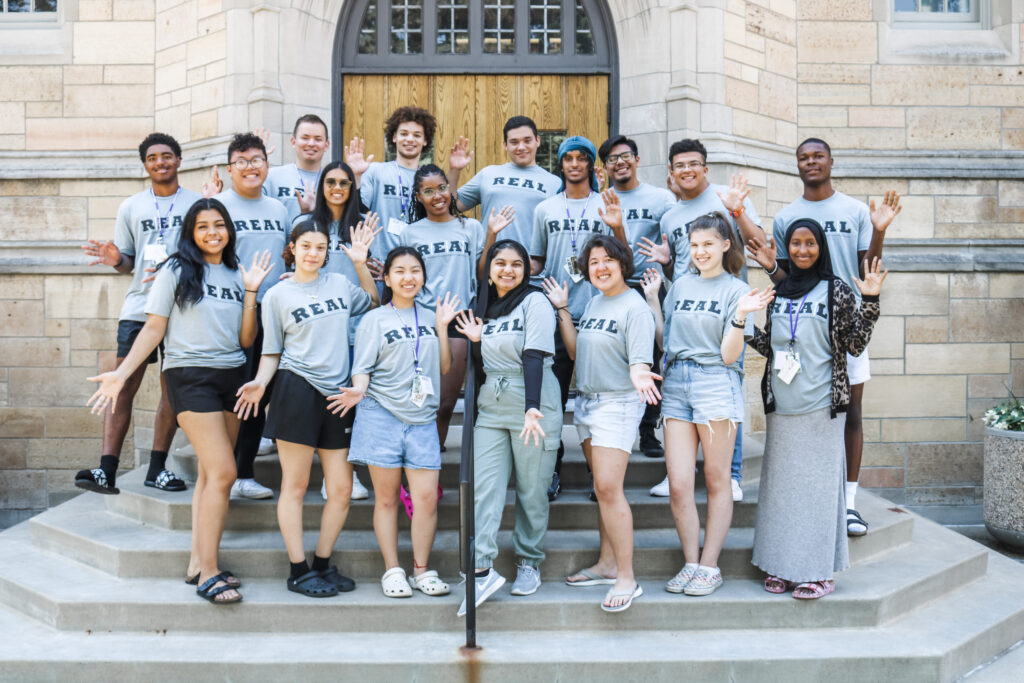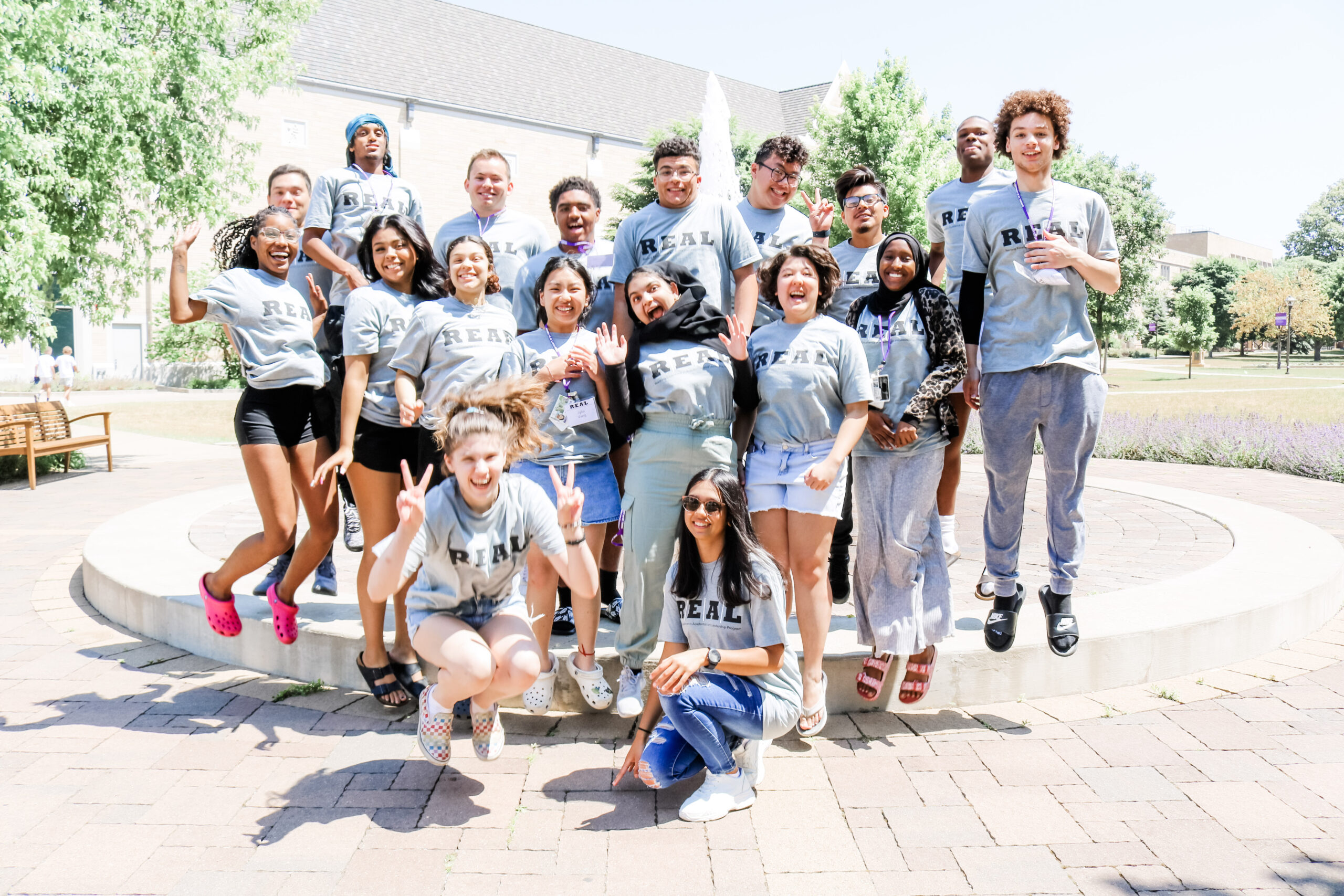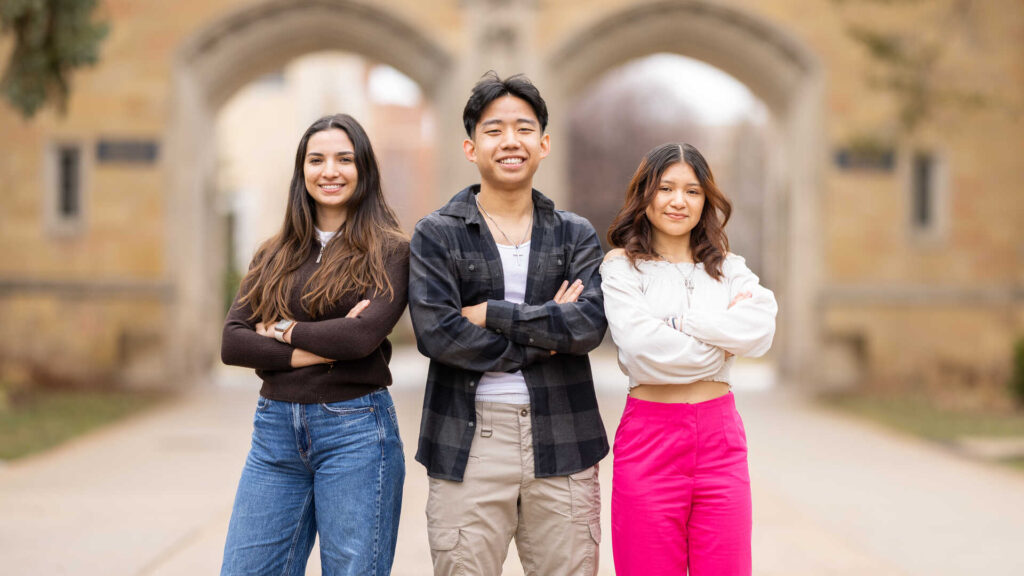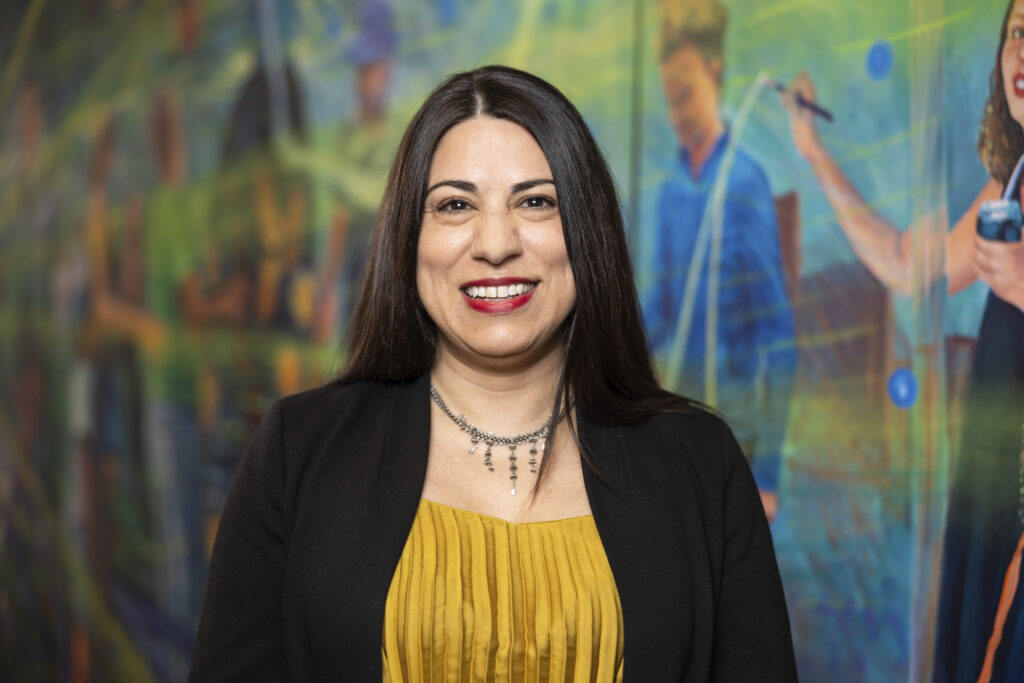Each summer on the University of St. Thomas campus, a group of 16 incoming students put on a talent show. The show is a hidden gem – it’s low-budget and barely advertised. Some years, you’ll catch poetry and singing. In others, improv or rapping.
While certainly entertaining, for these fledgling college performers, the experience is about much more than fame or talent. What is important, however, is that they feel confident sharing a piece of themselves within their budding St. Thomas community.
For this talented group, the show is the grand finale of sorts to their past five weeks on campus. All are members of the REAL program (Reaching Excellence in Academics and Leadership) designed to welcome new students traditionally underrepresented in higher education, including students of color, people who were granted asylum, and refugees.
Jay Lohr is one of this year’s talent show participants. The recent Stillwater High School graduate is proud of his Hmong heritage and is now feeling more confident to take on school this fall.
“Seeing people who look like I do, talking to them and being like, yes, we share this in common – that was really comforting,” Lohr said. “Having people around who understand what you're going through is really important … that's why a lot of us in this program have become so close-knit.”
The REAL program was founded in 1998. All participants take two college courses, live on campus, work a campus job, and are encouraged to take part in campus life activities. By the end of the five weeks, organizers hope these students walk away with an early taste of college and the relationships that will set them on a path toward success.
“It's always good to be a few steps ahead of the game, just to stand out, especially when you’re a person of color,” Lohr said. “You can get lost or left behind, and so having those first steps already in your pocket, that's going to help me eventually become a leader.”

Lohr – who plans to perform an interpretive drawing of an audience member at this year’s talent show – admits his “talent” is far from the most important piece of his REAL program experience. At the top of the list, he’s gained critical nuggets of information that should come in handy very soon.
“The program has been able to provide me with so many resources, like the Writing Center and Career Development Center,” Lohr said. “I never really gave thought to any of those spaces before, but now that I’m going to those places and experiencing them, they’re showing me how helpful they can really be.”
For fellow REAL program participant Jylia Vang, her own Hmong heritage is a driving force behind what she hopes to accomplish after college.
“I grew up with my grandfather owning a small corner store and I know that he wants to own a bigger store, but he couldn't do it,” Vang said. “I want to help small business expand globally.”
Creating a diverse community of support through the REAL program is a big step toward accomplishing her eventual goals.
Students of color and other minorities often struggle to graduate from four-year institutions at the same rate as their fellow white classmates. According to Nayely Becerra Castillo, assistant director for Student Diversity and Inclusion Services, it’s an issue the REAL program was designed to tackle head on.
"The program just really sets their trajectory and their vision for their own future,” Becerra Castillo said.
Not only do students get a head start by taking two free college courses, they meet with dozens of campus leaders and alumni, forging relationships that will pay off down the road.
“It's sometimes hard in our communities to ask for help because we're kind of used to figuring things out on our own,” Becerra Castillo said. “And so, when we make those connections and we have real conversations about the resources that are available to us, that in itself makes a difference.”
This year’s group of REAL students includes a wide array of backgrounds, and the students have been doing a lot of learning about each other.
“They've been very open about talking about their identities and even about their limited knowledge when it comes to each other's cultural identities,” Becerra Castillo said. “I've been really happy to see them engage and support one another in those conversations and be curious and open.”
For Lohr, he has big plans for his college experience at the university and won’t be wasting this unique opportunity.
“Being a part of the REAL program pushes you to be a leader,” Lohr said. “You want to learn more about different cultures, and I plan to use what I’ve learned to educate others as well.”







